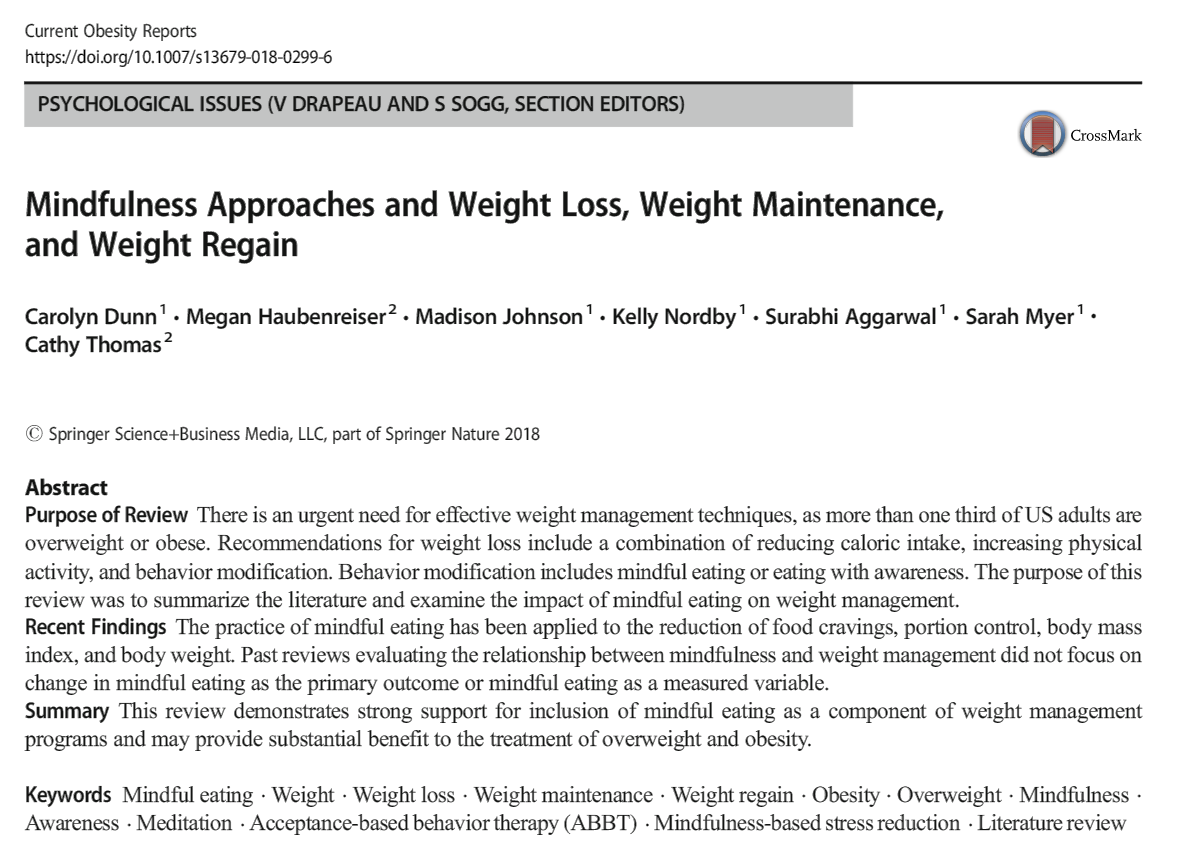Mindful eating can be defined as eating with awareness, which is compared to eating out of habit or because of an external stimulus (smell, atmosphere, peer pressure). It refers to being aware of one’s physical and emotional sensations while eating or when in a food-related environment. Mindful eating allows a person to pay attention to signs of hunger, satiety, pace of eating and characteristics of the food being eaten.
Logically, it would make sense to say that mindful eating would assist with weight loss and/or maintenance since a person will be more aware of what, how much, and why he or she is eating. Mindful eating concepts are strongly emphasized in the Eat Smart, Move More, Weigh Less curriculum. Participants are encouraged to eat with a purpose and to track what they eat to become more mindful of their eating practices. In recent years, researchers have tried to test the impact of mindful eating on weight.
The Eat Smart, Move More, Weigh Less program team was invited by Current Obesity Reports, a quarterly publication that provides in-depth review articles on latest advances in the field of obesity, to review the literature on mindfulness and its impact on weight loss, weight maintenance, and weight regain.
The Eat Smart, Move More, Weigh Less program team conducted an extensive literature search of peer-reviewed studies and summarized the impact of mindful eating on body weight. Based upon this thorough review of published literature, the writing team concluded that there is a strong support for inclusion of mindful eating as a component of weight management programs and may provide substantial benefit to the treatment of overweight and obesity. The final, published review article is available in full here: Mindfulness Approaches and Weight Loss, Weight Maintenance, and Weight Regain.
